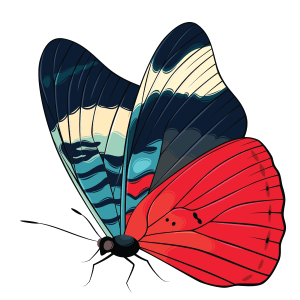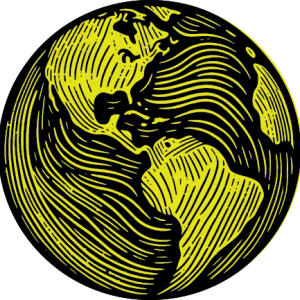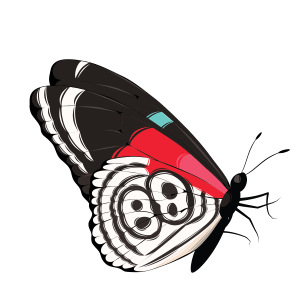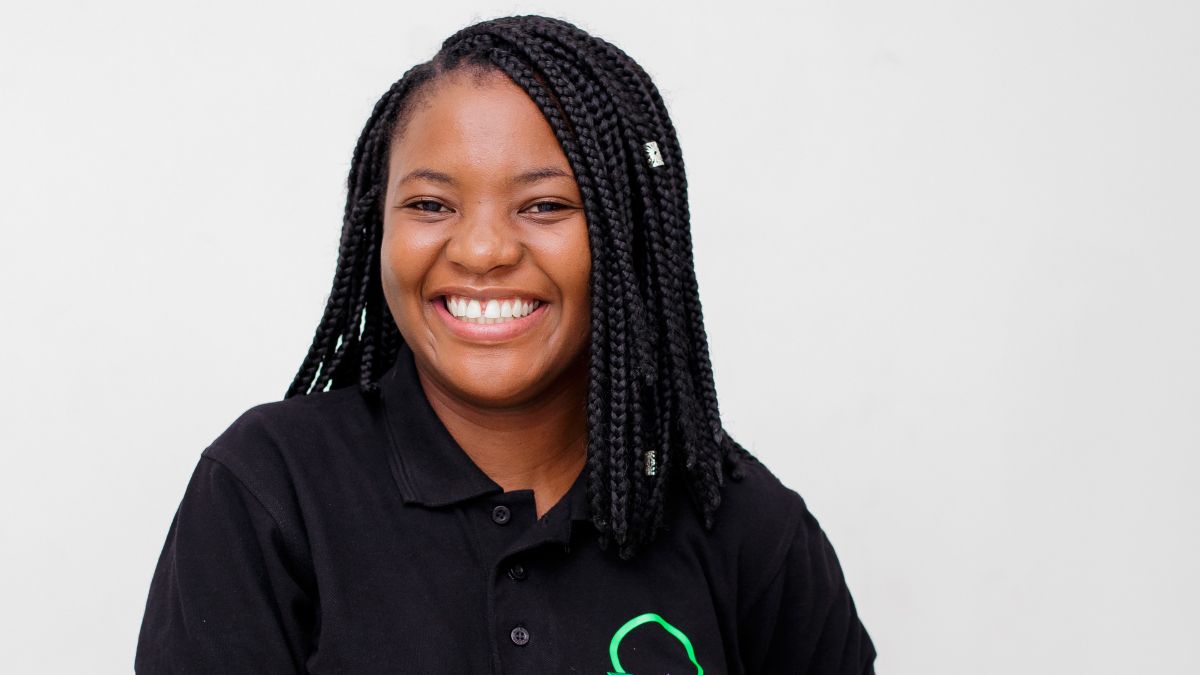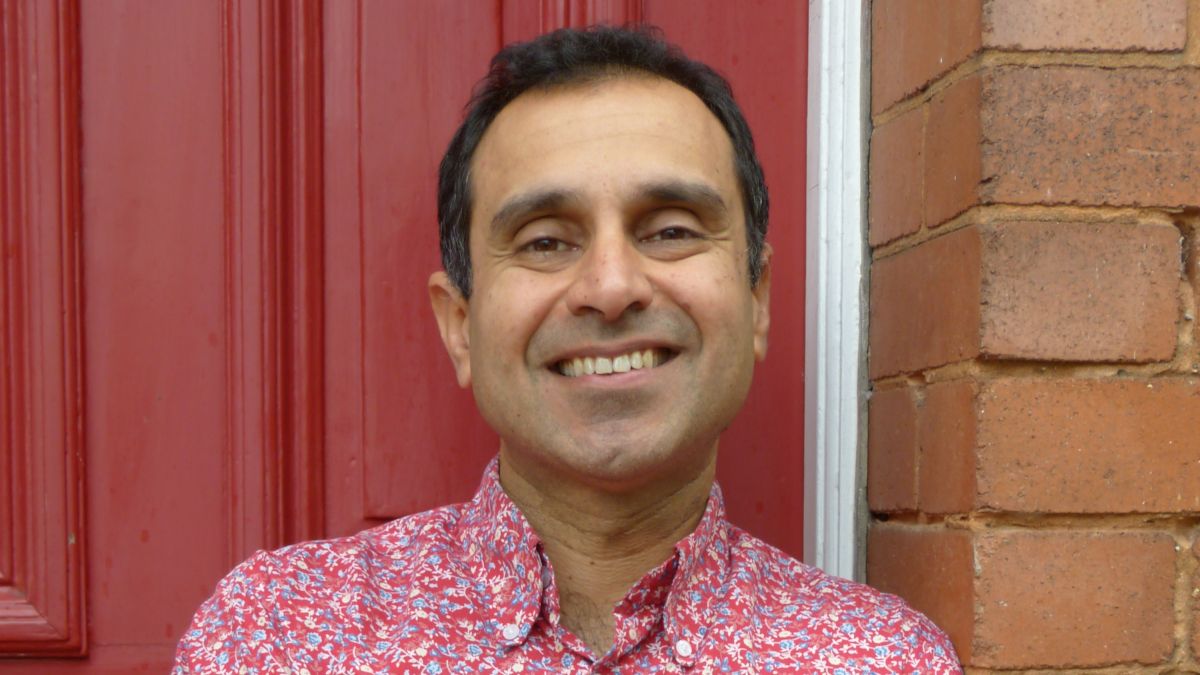October 2024
Remote Media URL
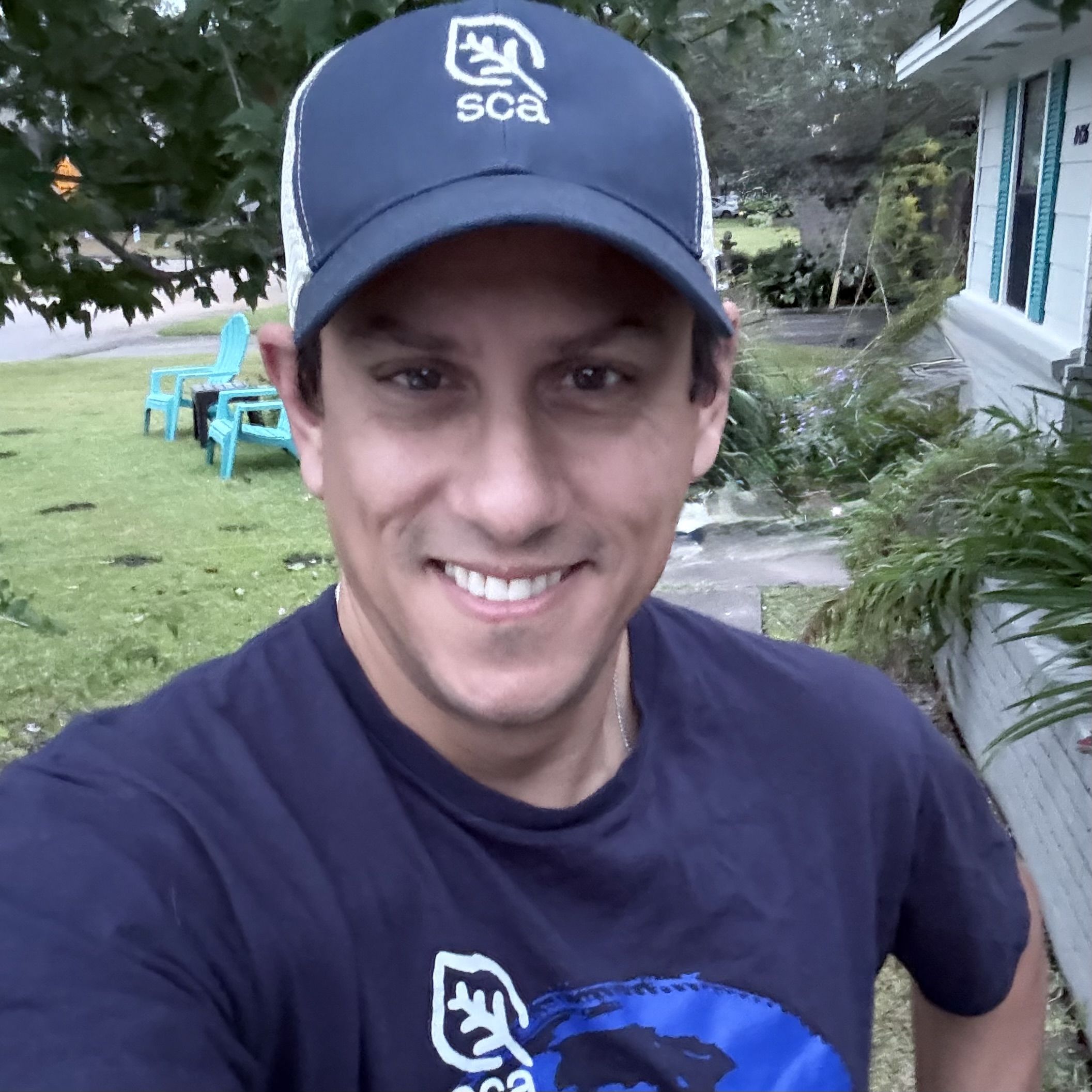
Explore the urban wilderness with conservation educator Jaime González as he talks about the evolution of the conservation field as well as his own growth as an educator. Growing up in Houston, Texas, Jaime shares about the impact a "nature-deprived" community has on our perception of where beauty, wonder, and yes, conservation can take place.
As Jaime explains, urban forests, prairies, and green spaces have the power to reduce the environmental and health-related inequities brought by the historically dichotomous perception of nature as a separate entity from developed urban areas. A passionate advocate for the One Health approach to conservation, Jaime's journey as a prairie conservationist, environmental educator, and community steward continues to build year over year and across his growing network of individuals of all ages.
Jaime delights in connecting youth, particularly of underrepresented groups, to opportunities for meaningful engagement in nature. Read more about Jaime's work on the Student Conservation Association’s Urban Green Page.
Follow along with Jaime's passion for art and conservation on LinkedIn and Instagram.
"I gravitated to the symbols and iconography and conversations that my peers did. And it wasn't the fullest expression of my culture, of my identity, of my perspectives... It took me really a long time to be okay not being the same...
And then it took another bit of time after that kind of comfort level to then fully express what I thought about how I thought conservation could be much better integrated with equity, environmental justice, and the climate movement, and Indigenous leaders, and what we need to own in terms of our history in conversation but also what we need to give."
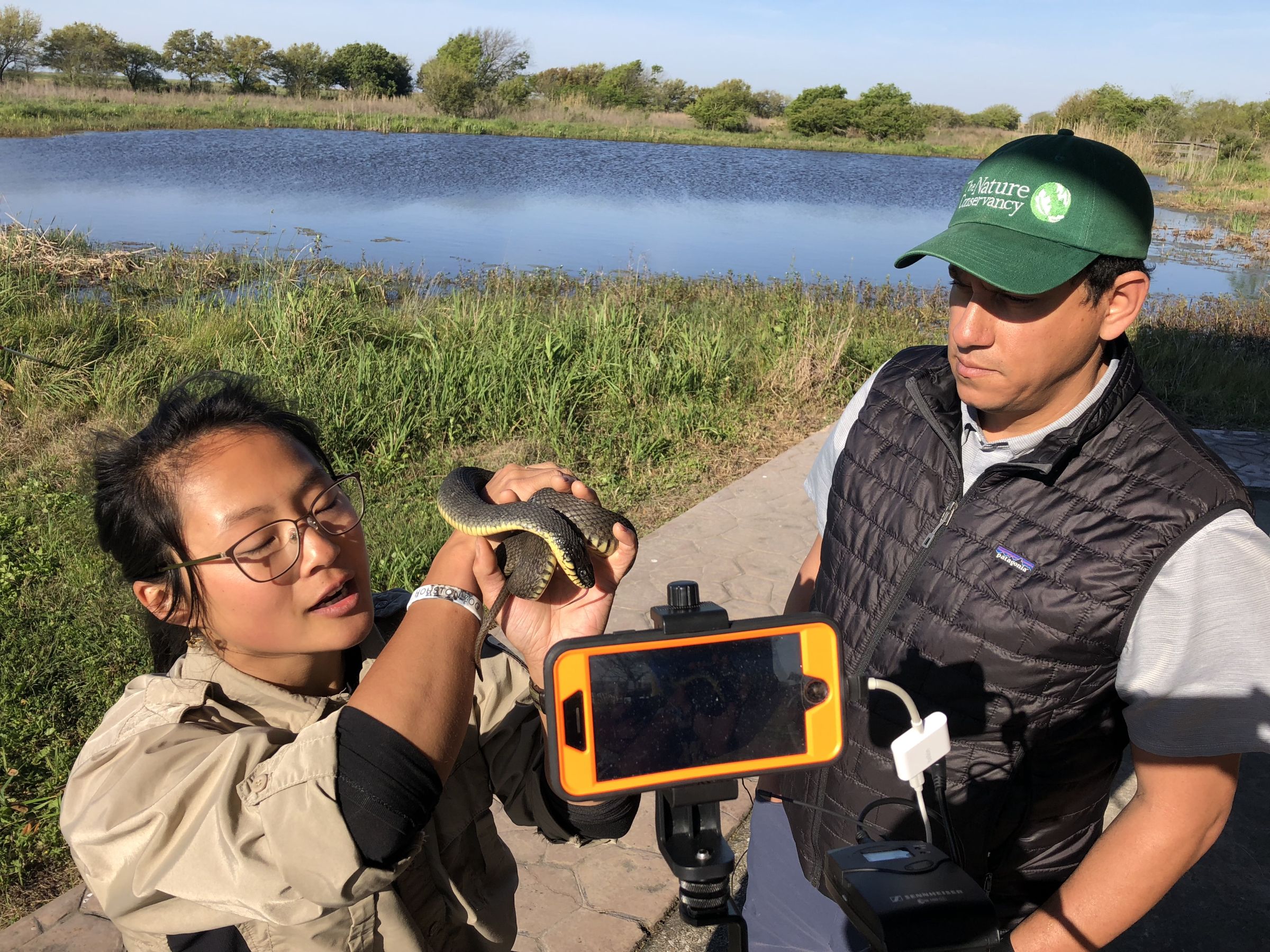
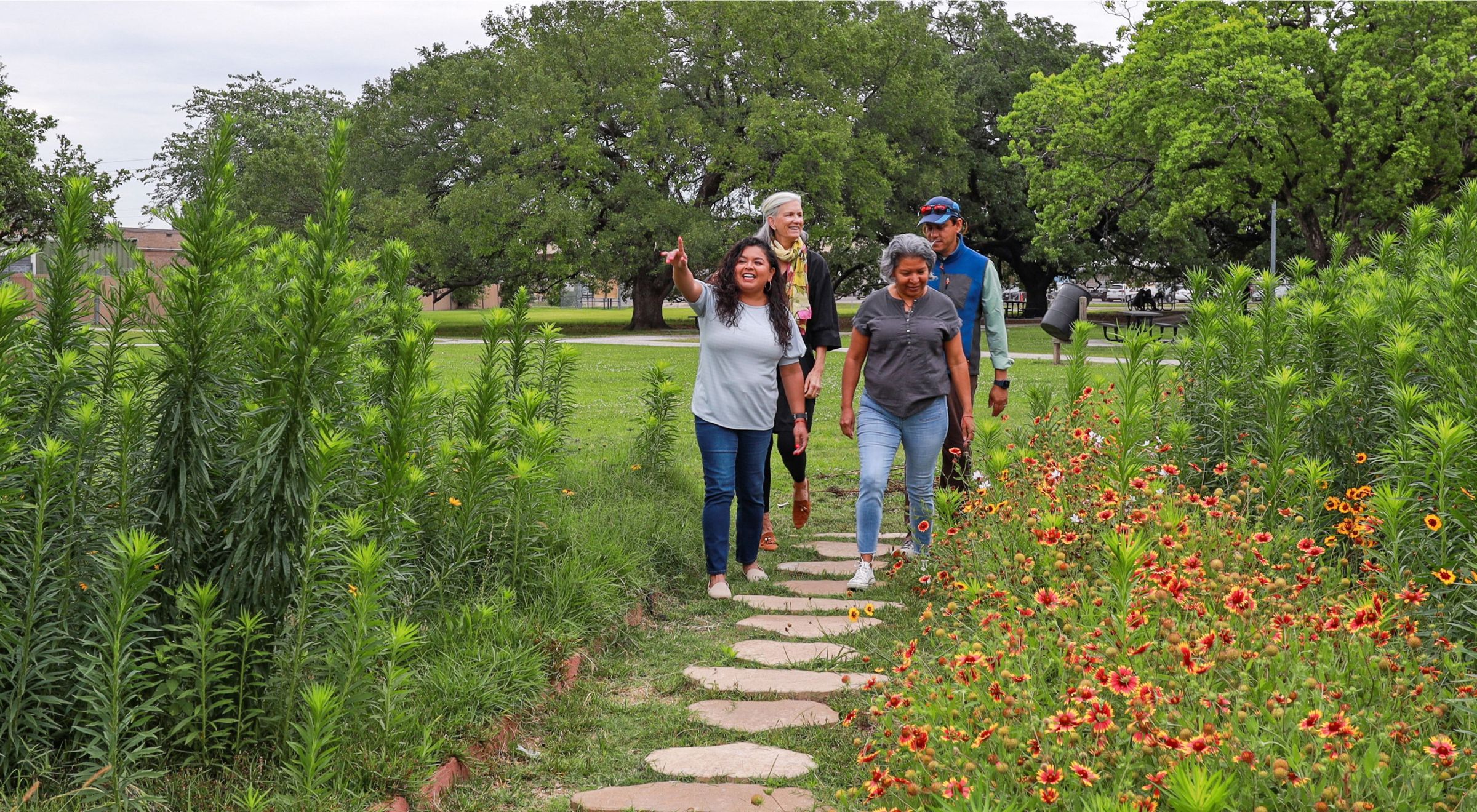
"For certain geographies, you could predict the history of systemic racism in that neighborhood based on the species you observed, because those neighborhoods were divested from healthy nature. So the people suffered but the rest of nature suffered right along with the people."
Jaime breaks down the research on systemic racism and biodiversity, explaining that the faltering environmental quality of an area, such as its air, water, and climate vulnerability impacts both nature and people.
"How can we redevelop spaces so that, guess what, you don't have to go to the Grand Canyon every year to find wonder, because it's around 52 weeks of the year. Let's rebuild it in our cities so we can find that joy every day.
I don't think we get there without the key ingredient of environmental educators out in the field, learning and unlearning with communities."
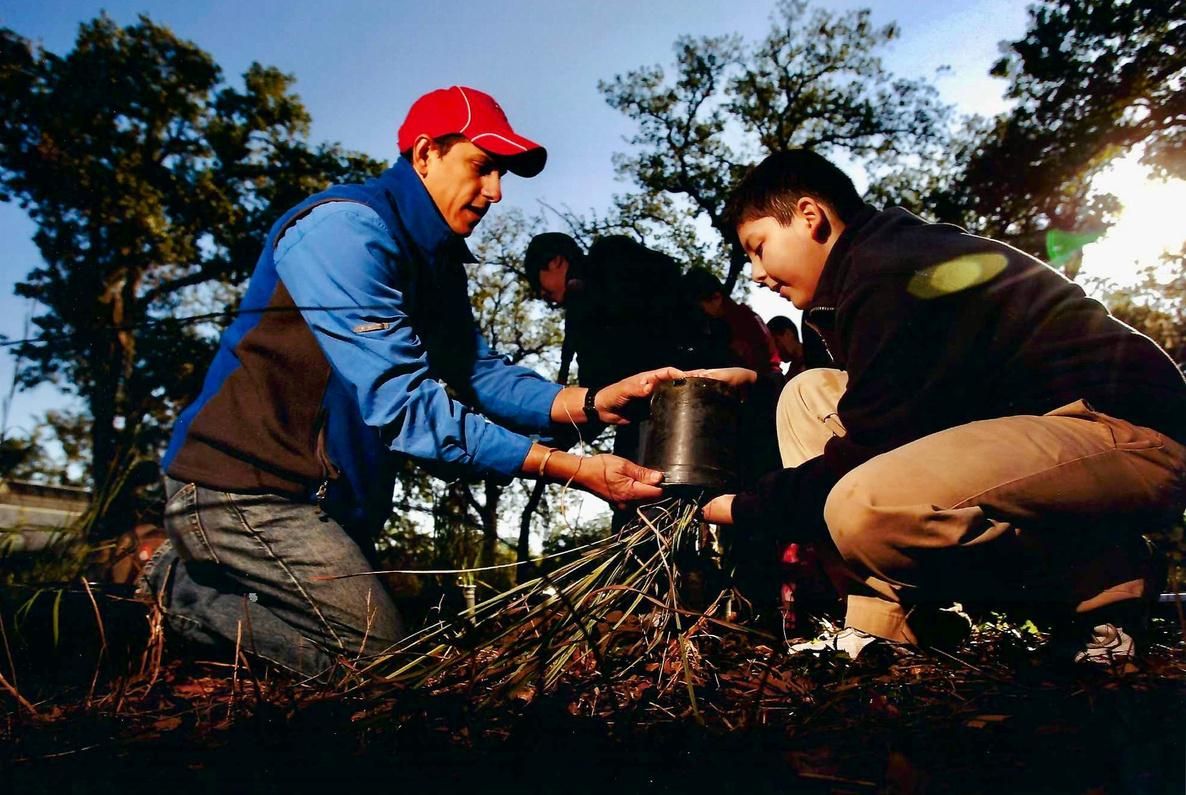

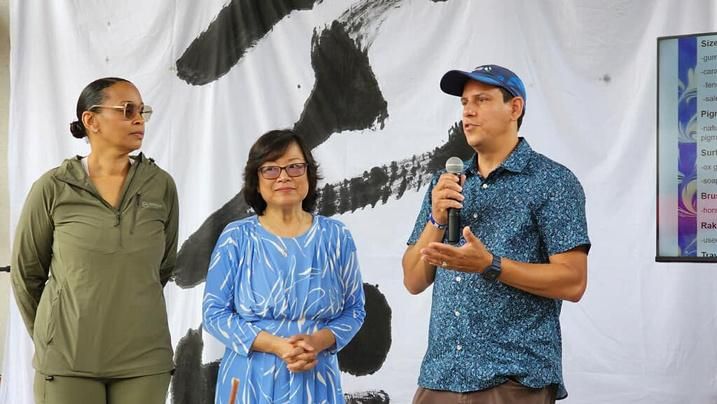
About the Guest Speaker: Jaime González
Jaime González, Urban Green Director at The Student Conservation Association (SCA), is an interdisciplinary conservationist, environmental educator, and network weaver who works to better ensure that the practice and benefits of conservation are more equitable and inclusive in Texas communities, including Greater Houston. This includes providing better access to conserved lands, engaging the public in community science and conservation opportunities, supporting Diversity, Equity, Inclusion, and Justice (DEIJ) initiatives, and contributing to policy development.
Learn more about Jaime's various projects supporting greener, more resilient communities, more equitable conservation, planning, policy, and funding for environmental education, and broad-reaching education for students and communities. Visit habitatjaime.com
Jaime works with local communities, governments, corporations, health professionals, and other nonprofit partners, to co-create healthier, climate-ready, and wildlife-rich places using nature-based solutions. Lastly, Jaime also serves as the chair of the North American Association for Environmental Education (NAAEE), which sets national standards for environmental education excellence.
Jaime has won numerous awards for his work, including the Distinguished Alumni Award from the University of Houston's College of Natural Sciences and Mathematics, the Prairie Champion Award from the Coastal Prairie Conservancy, and the Elizabeth Hull Abernathy Award from the Garden Club of America for outstanding contributions to environmental education of youth.
To see more of Jaime's dedication to environmental education, art, and conservation, connect with him on LinkedIn and Instagram.
Transcript
00;00;00;00 -00;00;38;10
Gerry Ellis, Host
Welcome to the World We Want: The NAAEE Podcast. Hi. I'm your host, Gerry Ellis. So, what is the world you want? For me, I'd like to see a world with more equitable access to education that would drive greater understanding of the sciences and, in turn, inspire us to rethink our overlooked urban wilderness. Yes, wilderness. As you'll discover on this episode
00;00;38;10 - 00;00;43;21
Gerry Ellis, Host
It's a place where over two thirds of the planet now calls home.
00;00;43;23 - 00;01;14;09
Jaime González
Early in the morning, every morning, I walk along a local bayou that's in my neighborhood called Brays Bayou. And it's a concretized bayou. It used to be a wild bayou, but they concretized it. And so some people like, oh, it's really ugly. But I'll tell you, every morning I do what I call a rhapsody walk. And part of that is just being attune and doing the work to open yourself up to the wonder of everything that's going around you and being able to be enraptured.
00;01;14;11 - 00;01;37;28
Gerry Ellis, Host
On The World We Want podcast, we talk to some of the great thinkers, creators, educators and conservationists, as well as some of the newest voices driving change around the world. All have given it a lot of thought. Our conversations are about the world they want and how they are working to build a better world. We all want. And what do they share in common?
00;01;38;01 - 00;02;08;04
Gerry Ellis, Host
Environmental education. One of the most powerful tools for creating a more just and sustainable world. It inspires, it enlightens, it influences attitudes. And most importantly, it drives us to become guardians of the planet, caretakers of our own communities. And it leads us to action. On this episode, we meet one of the leading voices in urban environmental education, Jaime González.
00;02;08;06 - 00;02;36;29
Gerry Ellis, Host
Jaime is the Student Conservation Association’s Urban Green Director. Jaime won numerous awards for his work, including the Prairie Champion Award from the Coastal Prairie Conservancy and the Elizabeth Hall Abernathy Award from the Garden Club of America for outstanding contribution to environmental education of youth. Jaime is passionate about the American prairie. He studied as a prairie ecologist and then became an avid prairie conservationist.
00;02;37;01 - 00;03;01;09
Gerry Ellis, Host
But as a young Latino male who grew up in a BIPOC urban environment, Jaime has long been driven to bring his prairie passions home to his local Houston, Texas, neighborhoods—one in which he has referred to as “nature deprived.” As he says, engaging urban populations in conservation is key, especially in a country where over 85% are urban dwellers.
00;03;01;11 - 00;03;38;18
Gerry Ellis, Host
Using all the assets under the environmental education umbrella has become one of Jaime’s specialties. Jaime suggests leaving folks with a good question to wrestle with is part of the culture of environmental education, and may be just the best thing we can do. I'm looking forward to wrestling with him over a few good questions myself. But before I do, if you're new to the podcast or to environmental education in general, you should know that the World We Want podcast is a production of NAAEE, the North American Association for Environmental Education.
00;03;38;20 - 00;04;08;11
Gerry Ellis, Host
And now I'm delighted to welcome to The World We Want Jaime González. I am super excited to have you on, especially as one of the first guests in launching this podcast because of your experience in the urban landscape. And when you think about 80%+ of the U.S. is now an urban liver and I think it's around 70% of the world's people live within urban landscape,
00;04;08;14 - 00;04;22;26
Gerry Ellis, Host
it really seems even more important that we talk about how to bridge that. And that's actually where I would love to start the podcast today is that you wrote, “Engaging urban populations in conservation is key.” Why urban?
00;04;22;28 - 00;04;49;21
Jaime González
Yeah. So first of all, thank you for having me, Gerry. I'm very excited to talk to you about this. So when I came up as a traditional conservationist, working in more wild landscapes, mostly focused on biodiversity, scenic view sheds, those things that really kind of built the foundation of conservation. Over the years, I started working in the urban zone, and multiple things happened during that 26 year period.
00;04;49;22 - 00;05;15;02
Jaime González
One is our our cities have surged in terms of population and number of folks living in them. The city got more diverse. My home city of Houston and the state of Texas got more diverse. And so what we saw was also a shift in terms of climate change and climate damage. Particularly in places like Houston. So there were a lot of shifts that happened under my feet.
00;05;15;05 - 00;05;41;03
Jaime González
And under just the basic socio-ecological system that we all call home. And so I think there's a two-pronged answer to this question about, like, why should we care about conservation in cities? Number one is I think it's the right thing to do. I think that, nature is a basic human right. And wherever you have people, what I say is you can't have healthy people when nature is sick.
00;05;41;05 - 00;06;12;11
Jaime González
And that's true of anywhere. Urban, suburban. Rural. But there are many, many communities that are sick because nature is sick. Either the tree canopy cover is not where it needs to be, or there's polluted water or polluted air. There's a lack of biodiversity access. And so I think the answer is one, we should be worried about how communities are dealing with these historic forces and what vulnerabilities they have.
00;06;12;13 - 00;06;33;29
Jaime González
Because, you know, we should believe in human rights. It's part of where we want this, the kind of world that we have. The other piece is much more kind of, functionary. What I mean by that is the conservation movement was built on certain power sources in terms of where it gets its power, its funding, its relevance.
00;06;34;01 - 00;07;01;12
Jaime González
And because there have been so many demographic shifts and because conservation hasn't always been the most open field to include everybody, I think there's a sustainability issue for conservation. If we're not reaching out to over 80% of Texans, which are in cities or over 70% in the US, if we're not diversifying the field by giving people not just more opportunities for employment, but more opportunities to engage in conservation.
00;07;01;14 - 00;07;26;01
Jaime González
I think that there's this sustainability issue, and I think that the ecosystems and the species that we have on this planet are wholly dependent on us being inclusive in that way. Because if we fail to be inclusive in conservation, I think all the work that we've done, it gets put at jeopardy, and we can't fulfill the promise of saving more places and making more places healthy.
00;07;26;03 - 00;07;33;14
Gerry Ellis, Host
I love this phrase, “Nature-deprived neighborhoods.” Describe in detail what you what you mean by that.
00;07;33;16 - 00;07;57;01
Jaime González
Yeah, nature-deprived neighborhood is not a term that I came up with, but it's starting to become kind of, a term of art. And really what it means is there is a lack of nature sufficient for that community to help fuel the neighborhood from climate change, or soak up flood waters or provide for the mental, physical, spiritual well-being of the people there.
00;07;57;04 - 00;08;25;22
Jaime González
And so when you go across, for instance, my city, we have these very lush, affluent communities, oftentimes, not as diverse. They've had the money to plant trees and, and keep up with things. And they weren't subjected to some of the historical forces that some other communities were. And then you'll go to a neighborhood like the one I'm working in Gulfton which is in southwest Houston, which is brilliantly diverse in terms of people.
00;08;25;24 - 00;08;49;19
Jaime González
But it has grown and developed in such a way that it has a very small tree canopy cover, which means that not only does it not protect people from things like climate change, it's actually the hottest neighborhood that we measured in a heat mapping campaign. But it can't protect them from air quality issues and water, you know, absorption issues.
00;08;49;21 - 00;09;15;11
Jaime González
And then also at a very basic human level. So, you know, oftentimes conservation is really worried about these outputs, like how many people can be protected from climate change, how many, you know, how many pounds of CO2 can we sequester those kinds of things, which is important. We've got to remember that every community is a human community. There's just this fundamental urge, need, want to hear bird songs, to see butterflies.
00;09;15;12 - 00;09;38;08
Jaime González
It's a very basic thing. And so nature-deprived neighborhoods have less nature in it. And what that means is that people are more climate vulnerable. They're more pollution vulnerable, and they're less able to tap into wonder and awe, which is a is a primordial human right and need.
00;09;38;10 - 00;10;05;14
Gerry Ellis, Host
Well, I want to, you know, it's interesting that you should say it the way you just said it, because something else I read in, in a post or something you did said “Academic achievement + climate readiness, + public health + biodiversity plus awe = green schoolyards.” And I love the fact that you used the word “awe.” I think we forget that sometimes.
00;10;05;17 - 00;10;31;14
Gerry Ellis, Host
And that's why I originally planned to start this conversation off talking about you as an artist, which I want to do because I think we can so easily get caught up in that idea around, especially around climate change, that there are these bigger forces and especially we see it right now, what's happened in the southeast, Florida in the southeast because of Helene, the Hurricane Helene coming through.
00;10;31;14 - 00;10;56;22
Gerry Ellis, Host
And so it's the damage, it's the power of all those things. But there are these other subtle pieces to it, like awe, that come from another place. And I don't think we've integrated those as well in our thinking about how we live around climate change and how we live around making our urban spaces a more natural place.
00;10;56;24 - 00;11;20;20
Jaime González
Yeah, I think the science of awe is developing and rather new. So it's very, it's a great question, Gerry, because what I think about in terms of outcomes or metrics, sometimes from a scientific standpoint, don't mesh up or are not communicated in terms of this bridging concept of awe, right? So it's very easy to put in a report at the end of the year for conservation groups.
00;11;20;20 - 00;11;40;20
Jaime González
How many acres were protected or how many miles of stream were improved or how many protected? How many folks are better protected from climate change? But what's the unit of awe? You know, sometimes there are. And like if I'm leading a group and a kid sees a butterfly and just exhales like, oh my goodness, right. That's a unit of awe.
00;11;40;22 - 00;12;04;00
Jaime González
But there's no great way of capturing that subtlety. And but it's it's super deep as you know, reaction. So we take vacations, some of us who are blessed enough to be able to afford to take vacations to a place where all is easy to tap into, like the Grand Canyon or Glacier Park or, you know, snorkeling in the Caribbean and seeing coral.
00;12;04;00 - 00;12;25;06
Jaime González
That's like my moment of awe. But you shouldn't have to leave your neighborhood to tap into the wonder of nature or the awe of nature. And early in the morning, every morning, I walk along a local bayou that's in my neighborhood called Brays Bayou, and it's a concretized bayou. It used to be a wild bayou, but they concretized it.
00;12;25;06 - 00;13;02;03
Jaime González
And so some people are like, oh, it's really ugly. But I'll tell you, every morning I do what I call a rhapsody walk. And part of that is just being attuned and doing the work to open yourself up to the wonder of everything that's going around you and being able to be enraptured, right? And so I think that part of the work of rebuilding and rewilding cities, is increasing the prospect of adventure, increasing the prospect of awe and for some people that is mental health, right?
00;13;02;06 - 00;13;22;00
Jaime González
A lot of mental health characteristics in terms of hearing bird calls or seeing trees or being exposed to other nature. For some people, it's spiritual. It is really at the heart of why they get up in the morning to do what they do in conservation, but it's not really spoken of in that way because it's not seen as either
00;13;22;03 - 00;13;46;02
Jaime González
in line with kind of the scientific enterprise of conservation. But that's why I'm really, at this point in my career, more interested in an Earth Care movement that incorporates conservation but also incorporates environmental justice and climate justice and artists and Indigenous leaders, because in its fullness, nature is way too large to be captured by just one field, way too large.
00;13;46;15 - 00;14;15;29
Gerry Ellis, Host
I'm interested in going back to that term again, “nature-deprived neighborhoods,” I'm really curious about where the education piece comes in, because we know we know in this country, especially the disconnect with science is a real problem. And it starts at very early age. I mean, kids are absolutely jazzed about all kinds of stuff when they're little.
00;14;15;29 - 00;14;42;26
Gerry Ellis, Host
And then it starts slipping, slipping, slipping. So it feels like if we're going to try to answer that question about nature-deprived neighborhoods, it's what is the education piece to get people to see that they don't have to be the, you know, you don't have to have the Grand Canyon in your backyard. You know, I mean, that's an extreme I know, but it, you know, nature is like, you said, on that walk that you go on—
00;14;42;26 - 00;14;58;20
Gerry Ellis, Host
There's a there's a lot of ways of experiencing it. And it seems like it's a reeducation of what we think of as the environment around us, what we think of as nature and our connection to it.
00;14;58;23 - 00;15;29;28
Jaime González
Oh, 100%, and let me unpack that in a couple of different ways. So in terms of education, you know, I always think about, like, what's the learning to take place and what's the unlearning to take place? So let me give you a good example of unlearning, I think, because I think is a very deep evolutionary thing, that when, when my wife and I had our son and when children are small, they're surrounded by animals. In everything from their clothes to their, you know, stuffed animals to the wallpaper.
00;15;29;29 - 00;16;06;18
Jaime González
Like it's all keyed into showing kids in many ways, like, what's the wildlife that is safe? I think this has very, like deep evolutionary roots. Like, we need to tell you what's safe, right? But as you get older, that kind of iconography, those kinds of images go away because we think of them as “kiddie stuff.” So one of the things there is to be unlearned is that wildlife and this love of nature doesn't need to, just like imagination, doesn't need to be seen as this finite thing that goes away as you get older.
00;16;06;18 - 00;16;30;01
Jaime González
So that's the one unlearning. But also in terms of education. One of the things that's happened in modern society here in Houston and cities around the country is that because of the way that we design cities, they're not really designed, many times, not always, but many times at the human scale. They're actually designed for cars. They're not even designed for us.
00;16;30;01 - 00;17;05;06
Jaime González
We're maybe the first species that design places not for ourselves, but for something else. In this case, something that’s not even alive. But when we do that, we oftentimes couple that with structures in places and spaces that are lacking in any sort of geographic specificity, most famously shopping malls, strip malls. And then added to that what we do is with our landscaping choices, every time something turns brown, we rip it out and we put in some colorful wildflowers.
00;17;05;06 - 00;17;47;15
Jaime González
So we're breaking the cycle of, like, knowing your place in a very deep and ecological way, breaking the notion of what a season is, then breaking, like this notion of like you can have this lifelong love and association with wildlife, and that's okay. That's not a kiddie thing. That's actually just a human thing. And so I think that when we look at education, I am very much for place-based education, knowing like, what are the deep ecological, social, cultural, political, forces that have shaped where you are and therefore shaped who you are in many ways.
00;17;47;18 - 00;18;11;00
Jaime González
We don't typically do a great job of that in school. We're wanting to kind of fill heads with lots of facts and things like that, take the tests and all those things and it almost seems like there's not enough time to learn local history or ecology or these things that would ground you as a person. And then they, you know, folks graduate at 18 and we say, well, become a citizen of that place.
00;18;11;00 - 00;18;21;12
Jaime González
Go and vote. But we haven't taken the time to actually educate them about where they live. It's kind of a weird, kind of weird thing, like go drive, but you haven't really learned to drive.
00;18;21;14 - 00;18;51;24
Gerry Ellis, Host
Exactly. Yeah. No, you know, it's interesting the way you're presenting it, because I've always thought about, one of the challenges, I think, in educating kids and I'm using that very broadly, the word education, but engaging them in the sciences and in conservation, all that it's often a punctuation mark in classrooms. It's like we're going to go do this thing this afternoon outside.
00;18;51;27 - 00;19;15;29
Gerry Ellis, Host
You know, we don't see it as a like a foreign language where you can't just learn the alphabet and speak the language. You know, it takes years to be fluent in that language. And it doesn't feel like we're teaching generations how to be fluent in the outdoors, fluent in our local landscape, and our local relationship to that landscape.
00;19;15;29 - 00;19;41;03
Gerry Ellis, Host
And it's a fluency that I think as we have become more, we're talking about being in urban landscapes. It seems like as we've migrated away from those places where we would grow up like that, we've migrated, you know, into this. I mean, you know, beautifully put with, you know, everything starts to look homogenous with the shopping malls and the strip malls and, and the way we design neighborhoods, even.
00;19;41;06 - 00;20;00;22
Gerry Ellis, Host
I mean, I've heard stories of little kids coming home to neighborhoods, couldn't find their house because all the houses look—the bus lets them off and all the houses look alike. It kind of leads into a question I want to ask you about, as BIPOC conservationist as you described yourself, you tried to flatten your experiences in the beginning.
00;20;00;22 - 00;20;03;23
Gerry Ellis, Host
What did you mean by that? Yeah.
00;20;03;26 - 00;20;26;28
Jaime González
You know, I think a lot about how people come into a space, what's expected of them, and what are the kind of the implicit messages that are being sent. And I think, you know, conservation is—I'm a conservationist. I still list myself as a conservationist now, One Health conservationist, but, you know, it has a long and storied history that has done immeasurable good.
00;20;27;01 - 00;21;02;02
Jaime González
So let's just like put a dot on that. And yet it has been exclusive at times and in certain quarters of conservation, it's still exclusive. And so as I came into this line of work, I quickly got the notion that, you know, my safest way of being was to try to look like other conservationists, to talk like them, to have some of the similar viewpoints, at least externally.
00;21;02;04 - 00;21;27;03
Jaime González
And so, you know, at the time when I started my career, there were very few Latino/Latinx conservationists in Houston. I didn't have a mentor. I was a first gen college graduate. I was learning how to be a professional in that kind of setting. So really, I, you know, I gravitated to the symbols and iconography and conversations that my peers did.
00;21;27;04 - 00;21;47;16
Jaime González
You know, I became like an REI conservationist. You know, I had the vest and I had the hiking boots, and I had, you know, straight out of the L.L. Bean catalog. And, you know, and to be truthful, it wasn't all bad. It wasn't the fullest expression of my culture, of my identity, of my perspectives.
00;21;47;18 - 00;22;17;09
Jaime González
And when I would go to conferences, you know, so there was one conference I went to where I was 200 people. I was the only person of color. And so it can be at times very isolating. And it took me really a long time to be okay not being the same, to be okay living and showing up in spaces where I shared my opinion and I could be happy and I'm very loud.
00;22;17;14 - 00;22;45;15
Jaime González
You know, and things like that. So and then it took another bit of time after that kind of comfort level to then fully express what I thought about how I thought conservation would be much better integrated with equity and environmental justice and the climate movement and Indigenous leaders, and what we'd need to own in terms of art history and conservation, but also what we'd need to give.
00;22;45;17 - 00;23;16;29
Jaime González
So that's another level altogether, because now you're really stretching and asking conservation to play in spaces where it's not always comfortable and where the facts can be messy, and then you start to get into questions about identity of the field and how people self-identify. And so it has been this kind of evolutionary kind of trajectory for me in terms of being a BIPOC, Latino man in this field and finding my voice.
00;23;17;02 - 00;23;37;13
Jaime González
And it's not been always a very easy journey. I'll just be honest with you, because in some spaces there is this flattening of identity. And so when you break out, there's, you know—trailblazers blaze trails, but they also get bitten on the trail. So, I think that's important to know. And but it's worth it because now I'm learning from folks that I might not learn from.
00;23;37;13 - 00;23;41;13
Jaime González
And I'm also able to mentor BIPOC emerging leaders.
00;23;41;15 - 00;24;01;06
Gerry Ellis, Host
Mentoring is exactly where I wanted to go with. And if you had been growing, if you had grown up in what you know now, what would a mentorship look like to you? What, so you didn't have to flatten? If you could be the roundest person possible in this space, what would that look like to you?
00;24;01;08 - 00;24;22;18
Jaime González
Yeah, I think, you know, you don't want to throw everything on an emerging leader or somebody who's considering conservation. If I could go back in and like, ask for a mentor, I think one thing I would have asked them to do is to give me a full accounting, as far as they know, about the deep history of conservation.
00;24;22;18 - 00;24;49;02
Jaime González
So I'm going to put this name on this conservationist name on, or this environmental educator name badge on. What does that mean in terms of what's come before and what am I? What am I telling people? I am right? So a more fuller count. Also, I think, in terms of having adventure, I probably would have chosen someone who's BIPOC to give me a notion of like, what are some of the logs under the water that I might hit?
00;24;49;04 - 00;25;06;00
Jaime González
What are some of the things to consider and what are what are some of the things that I should not give up in terms of identity that aren't going to do me any good? And it's also not going to do people that are employing me or having me in these spaces. It's not going to do them any good to not see the difference.
00;25;06;02 - 00;25;40;17
Jaime González
So I think that a mentor and when I mentor younger folks in high school or college or early career folks, you know, I just think that people should have as many facts at their disposal as they can and be able to question everything. And the good stuff will stay, the bad stuff will get sorted out. And, you know, but I think that people should really investigate, like, well, what does it mean to show up in this space with this title?
00;25;40;20 - 00;26;07;06
Carrie Albright
Hi everyone. I'm Carrie Albright from NAAEE. That was our host, Gerry Ellis, speaking with Jaime González. Thanks for tuning in to The World We Want: The NAAEE Podcast and learning more about the experiences and insights that have guided Jaime’s path as a conservation educator. We'll be right back to hear more from Jaime about how conservation can be taught and effective right in your own backyard.
00;26;07;08 - 00;26;32;26
Carrie Albright
The World We Want is a project of the North American Association for Environmental Education. This podcast is all about sharing stories like Jaime’s using education to improve the world around us. You can learn more about our mission of working with educators around the world to create a more just and sustainable future by visiting our website, N-A-A-E-E dot O-R-G.
00;26;32;29 - 00;26;57;11
Carrie Albright
We'd also love you to connect with us on social media. You can find NAAEE on Facebook, Instagram, LinkedIn, and YouTube. And if you're enjoying what you're hearing, please consider adding a rating, a review, or subscribing wherever you listen to your favorite podcasts. We have many more stories, ideas and inspiration in store for this season of The World We Want, and we can't wait to share them with you.
00;26;57;13 - 00;27;11;09
Carrie Albright
Now back to Gerry and Jaime to hear more about the role nature plays in our lives and how our connection with nature is foundational to our work in conservation and environmental education.
00;27;11;12 - 00;27;24;19
Gerry Ellis, Host
I want to turn to something you said earlier. You mentioned One Health, and I know that's really important to you. Describe what you mean by One Health and what you in this urban space. What does it mean to you?
00;27;24;21 - 00;27;50;02
Jaime González
I think that One Health is something that I came to about three years ago. I had been searching for a more inclusive, broader lens by which to look at creating healthier spaces with nature and something that could combine my absolute love and work around biodiversity conservation and with environmental justice and climate resilience and the need to engage communities.
00;27;50;02 - 00;28;14;27
Jaime González
in this discussion. And conservation was fantastic and we absolutely need conservationists and ecologists and things to come to a healthier planet, healthier communities, healthier neighborhoods. But it wasn't broad enough. It wasn't capturing the dynamism of the urban conservation work that I was doing at that point at TNC. Because it was so multilayered and intersectional.
00;28;14;27 - 00;28;53;09
Jaime González
It went way beyond biodiversity conservation or scenic view sheds. So at that point, I, was fortunate to take a class at the University of Alaska Fairbanks online. Didn't know anything about UAF at the time, didn't know anything about the One Health construct and but UAF in their researchers at their One Health research center had really kind of taken what it started with One Health as something that really looked at zoonotic diseases like Covid 19 and all the impacts it could have on people, wildlife, domesticated animals and other things that could be a threat from nature.
00;28;53;12 - 00;29;13;29
Jaime González
And it expanded out into, okay, we know that there are these threats like hurricanes and zoonotic diseases, but what are all the positive benefits that nature brings? What are all the interconnections, the richness that it brings? And so I knew pretty immediately after, like a week in the class, boom, this is the frame that I've been looking for.
00;29;14;01 - 00;29;40;03
Jaime González
And so really One Health is by definition that intersected area in the middle of this Venn diagram where you start to intersect environmental health, human health and well-being, and biodiversity and domestic animal health. And so for me, it's a fantastic framework because I don't have to come into a community and say, everybody care about conservationists. I want you to be conservationists.
00;29;40;05 - 00;30;06;24
Jaime González
It's like I can come to a table that we co-create with all these different sectors and we can say, what do we want to do together in terms of uplifting the health of nature so she can be more supportive of human health and justice and economic vitality and careers, while also not neglecting those Indigenous species or the quality of the air, health and soil?
00;30;06;24 - 00;30;29;00
Jaime González
So how do we bring this into policy, into planning, into science, into communications, and most importantly, on-the-ground action? So how and where can we beef up nature and work with her as a partner, as opposed to kind of using her as kind of some substitute? And what it does, it makes you do a lot of things.
00;30;29;03 - 00;31;01;09
Jaime González
One is it elevates species into interested parties or stakeholders. So no longer are they kind of there for our disposal to do what we want. They're actually partners in the planning and funding and conceptualization process, right? Two is it says to everybody that conservationists and conservation isn't the only thing going in terms of, you know, saving species, and all that.
00;31;01;09 - 00;31;16;27
Jaime González
And it also says conservation should absolutely be concerned with environmental justice and equity. So what it is, is a comprehensive framework that allows us to look at all these intersectionalities and do something in the world about it.
00;31;17;00 - 00;31;42;29
Gerry Ellis, Host
In thinking about that and thinking about getting people to come together around those ideas, something else you mentioned, in some writing was conservation has, I think you said it's done some great things, but it has a real “blind spot.” And I was wondering about that blind spot in trying to engage those communities around all those things you talked about with One Health.
00;31;43;02 - 00;31;49;08
Gerry Ellis, Host
What do you find is the greatest blind spot going in and talking to those communities?
00;31;49;11 - 00;32;09;02
Jaime González
Well, in terms of, yeah, in terms of those communities, absolutely. I think that there are multiple blind spots and I don't want to lay this all on conservation. A lot of sectors have blind spots. And I'll talk to about one of those. So one of the things is, this has really happened with the kind of acceleration of big data.
00;32;09;04 - 00;32;30;25
Jaime González
So now big data is the thing. It's being well funded. And there are many, many different maps that slice and dice the data in so many different ways. And it's super powerful. But one of the things that data scientists and conservationists and frankly, public health people, and a lot of different fields do is they confuse polygons on a map for people.
00;32;30;27 - 00;32;52;07
Jaime González
They go, well, we know this community because we can visualize all the discrepancies, all the inequities, all the challenges on this flat map with all these shapes. So we know this community. So I think one of the blind spots that we all have to protect against, and that includes me, is that you don't know what community until you know, a community and you get down the ground, you talk to people, you hear from them.
00;32;52;13 - 00;33;15;00
Jaime González
And one of the blind spots that all of us have shared over the years, that it's getting better, hopefully, is that community members are experts. They are flat-out experts. No qualification needed. They’re expert in terms of their lived experience, those places, their histories, their patterns, they all know way more about those places than we will ever know.
00;33;15;02 - 00;33;36;08
Jaime González
So the goal there is to ally great science, great community engagement and other ways of knowing and being, whether that's Indigenous knowledge or other ways of knowing and being artistic ways of knowing and being into a system that's more powerful, that can cause change. Right? So when we talk about blind spots, I think that that's part of it.
00;33;36;10 - 00;34;12;09
Jaime González
I also think a huge blind spot that's still around for some folks in the conservation community, but not everybody, is the definition of nature itself. What is real nature? And part of that really goes back to the wilderness construct, which I believe has been both helpful and damaging. The wilderness construct is a particularly Western and American way of looking at nature in a way that says the best quality, the highest standard for nature, is that places where people don't exist. Untouched by the hand of man.
00;34;12;12 - 00;34;30;25
Jaime González
But the truth is, there are two things that counter that. One is people have been on this continent, by some estimates, between 15 and 20,000 years. There's not a stitch of this place that has been free of some sort of human intervention or management, some for thousands of years. So the wilderness construct kind of falls apart when you look at the scientific evidence.
00;34;30;25 - 00;34;59;14
Jaime González
The second piece of scientific evidence, and this is fascinating, is there was a comprehensive study done on where the highest biodiversity levels are in the world. And on average, not everywhere, but on average, it was the places where Indigenous people are managing the land. So I think part of the notion that's there is one definition of nature that's cut and dry, that it's people free, that those are the places that need saving—
00;34;59;16 - 00;35;20;03
Jaime González
If you set that standard, what you're saying is that cities are not full of Indigenous landscapes sometimes. They're not, they don't have the Grand Canyon and they don't have the mountains. They don't have these forests. So what you're saying is cities are a sacrifice. So where we shouldn't really be concerned with nature, the real nature is out there to be saved.
00;35;20;06 - 00;35;42;26
Jaime González
That causes multiple issues. One is wildlife has to migrate across cities. So if there's not great habitat, there is not great lighting or whatever. There's a direct, you know, nexus there with what we're trying to save in conservation. But I also think it says that communities are sacrifice zones. And I think we just can't, we can't do that
00;35;42;28 - 00;36;19;29
Jaime González
And one, stay relevant and stay true to kind of a higher ethical frame. In terms of blindspots, one other thing I'll say real quickly is when we introduced the One Health concept to folks who are in the environmental justice movement or the climate justice movement, or the public health movement or the affordable housing movement, and we say like this framework includes Indigenous species as a stakeholder, sometimes that is perceived very negatively. And it's understandable because many of these communities have been marginalized and people haven't been listening to them.
00;36;19;29 - 00;36;42;03
Jaime González
And so in their minds, I'm now introducing a whole suite of stakeholders that are going to share their pie. So I think that if you look at the principles of environmental justice, the first one is basically don't mess up the Earth and keep it alive and healthy. So I think that every sector has its blind spots. This is not unique to conservation.
00;36;42;05 - 00;36;57;18
Jaime González
It's just when you get in the middle of that Venn diagram with One Health, you start to understand that you can't really solve for human health and well-being without really thinking deeply and acting deeply around the quality and the quantity of nature in any community.
00;36;57;21 - 00;37;27;21
Gerry Ellis, Host
Do you think there's been especially in marginalized communities? And I am thinking globally as much as locally here, that often people have seen themselves pushed out of the way by that white construct of protecting nature. I mean, conservation basically goes back to somewhere in the mid-1800s. You know, it was wealthy white men who went out and said, we're going to protect this and protect this.
00;37;27;21 - 00;37;52;23
Gerry Ellis, Host
And they tended to be these grandiose places because their connection to God and their reverence for big landscapes or a place they wanted to hunt, and often people were pushed aside of those places, right. Do you think it's a case of sometimes that stereotype of being pushed aside to protect nature has created a conflict zone between people wanting to embrace it.
00;37;53;01 - 00;38;28;29
Gerry Ellis, Host
And so cities became these places where I didn't have to deal with that conflict. These were people places. And now we're trying to say no, no, no. They need to be holistic places if we're going to survive some of these things. How do we rework that stereotype so that people of color, people who are lower on the economic chain, all of those people begin to see it is something to embrace, and it's not pushing them aside? Because I can see that in that place where you said the Venn diagram comes together, I can see there's a collision in there.
00;38;29;03 - 00;38;39;24
Gerry Ellis, Host
It's not just a complete, it's not an embrace. I can see a lot of collisions. And how do we mitigate those collisions and start reeducating people to living in there together?
00;38;39;26 - 00;39;12;01
Jaime González
Yeah. I think what we're doing is we are reweaving a blanket that has become highly frayed. I think all of our ancestors understood at some point that abundant, healthy nature codes for a good life. And I think that what you had is you had multiple movements. But we'll just take two of them. Conservation, like you said, it came out of a wealthier, whiter frame that oftentimes excluded people, but also sometimes literally ejected people from their lands.
00;39;12;01 - 00;39;40;20
Jaime González
I'm talking mostly about Indigenous folks. And then you had the environmental justice movement, which was partially born here from studies that were done in my home city. And that came out of communities that were fighting for their basic human rights to healthy water, land, and soil. And those were oftentimes disinvested BIPOC communities. So, so the Earth Care movement in the United States comes out of many streams.
00;39;40;20 - 00;40;07;28
Jaime González
The parks space movement, the conservation movement, the EJ movement, all of these different movements. But they all kind of originated to some degree or another in a little bit different place. And so there is, like you said, there is a conflict zone sometimes in there. What I always try to remind people is because sometimes what we do is we set up this diametrically opposed construct, and we talk about a blind spot of
00;40;08;01 - 00;40;28;15
Jaime González
you either care about the birds and the trees, or you care about the people and what they're having to suffer through and get challenged with. And so you only have so much money, so you got to do one or the other. And so I think part of the unlearning to do is that it's not nearly that cut and dry.
00;40;28;15 - 00;41;07;28
Jaime González
And I often say that it's usually people in nature against bad systemic forces. It's not people against nature. It is—because what we've—there was a study that came out, not maybe like two years ago that was done by a researcher at NC State with some colleagues. And it looked at systemic racism and its impacts on biodiversity. And what they found in the study is for certain geographies, you could predict the history of systemic racism in that neighborhood based on the species you observed, because those neighborhoods were disinvested from healthy nature.
00;41;08;01 - 00;41;31;24
Jaime González
And so the people suffered, but the rest of nature suffered right along with the people. And that's what we see around community after community in the US is when the environmental quality goes down because we pollute the soil, air, water, climate vulnerability, don't invest in parks and green space and trees—nature suffers with the people. So it's a living community against bad systems.
00;41;31;26 - 00;41;53;12
Jaime González
So I think these things come out in lots of different ways. When we look at One Health, kind of what I call “aha” moments, where people go, what? So, for instance, in a neighborhood I'm working in that's heat vulnerable to climate, it's heat vulnerable because nature is sick. We don't actually have enough trees for the neighborhood because we don't have enough trees.
00;41;53;15 - 00;42;22;11
Jaime González
Biodiversity shrinks because biodiversity shrinks. So you don't hear the bird sounds. And so that's detrimental to humans. But also a little known fact is, the hotter neighborhood, the more likely it is to experience violent crime. So when nature is sick, all sorts of cascading things happen that people who care about equity, safety, care about human health and well-being, affordable housing, because these communities are often more climate vulnerable.
00;42;22;13 - 00;42;55;16
Jaime González
It's a cascade effect. So I think that we just, you know, I think that what we need to do is we need to think about the fact that when we're rebuilding healthy ecosystems and working with nature, wherever that is, One Health is not constricted to urban environments. It can be anywhere. That the more we know about these underlying, oftentimes hidden patterns, the more I think people will demand their human right to to nature because they understand that it's connected with everything that they care about.
00;42;55;19 - 00;43;21;13
Gerry Ellis, Host
How much resistance have you found when people come into a community to “help” that community, health care workers, social workers, you know, economic how much resistance amongst those professionals have you found to in bracing the nature side of the health of that community? Do you see that changing?
00;43;21;16 - 00;43;53;03
Jaime González
Yeah, I think it's changing. I think part of the super challenge of living in Houston, Texas, at this moment and the thing that really brought myself and colleagues to One Health is the accelerated nature of climate disasters here. The unbelievable rate of biodiversity loss, the chronic environmental injustices and health challenges. We're living in a county that has greater than 20 years difference between the longest-lived community and the shortest-lived community.
00;43;53;03 - 00;44;14;17
Jaime González
That's a massive, massive difference. And part of that is environmental. So when you have this many challenges, you have to like, look at and go, man, what we're trying is not working. We have to go to a different framework that is more holistic. And so I think as people start to really think about, nature protects me from flooding.
00;44;14;19 - 00;44;36;20
Jaime González
Nature can protect me from getting heatstroke. It can protect me from this terrible air that we have here. It can uplift my spirit when I see it. So I think that as we've had a park renaissance here in town, and as we get more climate disasters, I think people are really cuing into the fact that we need nature to stay safe and healthy.
00;44;36;23 - 00;45;05;19
Jaime González
And it's something that we should have had a long time ago in many communities. I think that, you know, one of the things to guard against is where you put the nature and how much you put it in, how quickly, where it's located geographically, because you can, you know, not by your desire, but you could spurge green gentrification, where the people who most need these improvements are moved out because of it.
00;45;05;23 - 00;45;34;27
Jaime González
And so that, to me that's a little bit different flavor of getting moved out of Yosemite, you know? Or some other, not as violently. But you know what I mean? Like, we don't want to push out people to bring in green interventions. So we have to be very in tune with the community. And we also I'll say this one last thing, and this is super, super important, we have got to stop practicing helicopter conservation or helicopter services.
00;45;34;29 - 00;45;54;04
Jaime González
When you drop into a community and say, I'm here to help and you have two years of funding or three years of funding, you have to be very upfront with community to say like, this is what I can do, this is what I can't do. And here's the risk to you. The risk is I'm going to run out of funding in three years or my institution will change its priorities.
00;45;54;04 - 00;46;34;09
Jaime González
And I've seen this quite a bit, and they're not going to get pulled out. And in that time, that 2 or 3 years, maybe we're just planning and we're planting the seed and we're going, I haven't put anything on the ground. And so I think that communities in need often are overstudied and underperformed by people looking to help. And so a lot of these folks are skeptical, and rightly so, that you're there to either use them as a source of information for research that's going to bolster your career, or you're going to come in to burnish your reputation, your brand, but you're not going to lead anything of consequence there.
00;46;34;09 - 00;46;52;04
Jaime González
You're just making them more tired because now they just go on to another planning thing and it's sitting on a shelf. So if I commit to a project, I'm going to be there for years. Even if my institution switches gears, I'm going to stick with them because I have given them my solemn promise to stick with them.
00;46;52;06 - 00;47;16;29
Gerry Ellis, Host
Wow. Yeah, we we could have we could have a whole ‘nother podcast on that alone. Believe me. Listen, Jaime before I let you go, I do not want to switch bases, but I want to come through a different lens. You've mentioned a lens a couple of times. One of the things in doing research, about you prior to the podcast was that you're an artist.
00;47;17;02 - 00;47;40;11
Gerry Ellis, Host
You wrote back a small note when I sent you a note about that. You said, “To be truthful, this is a descriptor that I was hesitant to use on myself.” Tell us a little bit about your art, what that art means to you, and how has it fit into these spaces and what you're doing. But also, why were you resistant to be an artist?
00;47;40;14 - 00;48;09;05
Jaime González
Yeah, I think—it's like, you know, sometimes you'll hear say people say, you know, everybody's an artist. But then again, they're professional artists. So my wife is an art history major. She got two degrees in that. I have friends that are professional artists who do amazing stuff. And so when I started to do my photography, the AI art that I do now, it was really coming from not a notion of like, I want to be an artist,
00;48;09;12 - 00;48;39;07
Jaime González
I want to produce art. It was I have these deep-seated feelings that I need to get out of my body in terms of this rapture that I see with wildflowers and trees. And then the photography allows me to kind of really put a fine point on that. That wonder surrounds us every single day. And even species that are in the cracks of the pavement, if you look at them closely, they're wondrous, beautiful color palettes.
00;48;39;07 - 00;49;07;19
Jaime González
They're bringing in colorful pollinators. They're surviving, they're resilient. So I think part of it was live into the wonder and show the wonder as best I could to other people, the AI art and the other art that I'm doing is much more these days about crossing those boundaries, crossing those lines between conservation and environmental justice. And the need to diversify and listen to communities of color.
00;49;07;22 - 00;49;26;00
Jaime González
And that was really born of the kind of constricting force that I felt in some quarters of conservation—not all quarters, here are some really awesome people working out there. They're very intersectional. So I just want to say that—But it was just like this constricting. Like as a conservation, you can only be one thing. You can do this one thing.
00;49;26;00 - 00;49;46;16
Jaime González
And I decided with One Health in art, like, no, I'm going to make people kind of wrestle with what does it mean to care about the earth right now with all of these challenges that we have, what does it mean to be a human dealing with this? And so a lot of that really is kind of intersectional art.
00;49;46;19 - 00;50;06;05
Jaime González
AI is fun because it's easier to generate stuff that I couldn't generate otherwise but I think there's a little bit of a creative process in terms of the prompts that you use and things like that. So I finally once I did a couple, I was participating in a couple art series and a couple of lectures about, nature and art.
00;50;06;08 - 00;50;22;24
Jaime González
I still wasn't ready to go. And finally I had coffee with a good friend of mine and I said, well, I'm really struggling with this whole title that people are putting on me. And she literally got up, smacked me on the head—literally—and said, you know, with a little bit of a curse word in there
00;50;22;24 - 00;50;38;22
Jaime González
I'm not going to repeat, “You are an artist. Stop it. You're a good artist.” And so I finally had to just give that over to myself to say, you know, if other people see you that way, then you're going to have to inhabit that space and be more comfortable with it, you know?
00;50;38;23 - 00;51;07;22
Gerry Ellis, Host
And as we move forward with this podcast, The World We Want, I think I've been thinking about how to end each podcast and since you're going to be one of the first out of the gate in what we hope is a long-lived podcast series, if you're thinking about the world we want—big, big picture, small picture, which you decide—what is the world that you want?
00;51;07;29 - 00;51;18;06
Gerry Ellis, Host
Describe something of it in a decade or 25 years? I mean, what comes to life for you in your mind?
00;51;18;08 - 00;51;38;02
Jaime González
Yeah, I think that's a great question. I think about this a lot. Like I have a ten-year-old son, like, what do I want the world to look like for him? And I think it's a world that’s fair, it's more equitable, it's greener. People are reconnected to their ancient roots, to nature. I think it's a place that is lovely.
00;51;38;04 - 00;51;58;05
Jaime González
It's full of art and expression and diversity and fun and joy. And I think that the joy piece of it oftentimes gets lost as we, you know, as we kind of like we to control global warming and we have to keep it under certain parts per million in terms of carbon. We have to fight against all of these things.
00;51;58;05 - 00;52;24;06
Jaime González
just to get to a point where we're survivable. You know, I think that we really have to shoot for way more than that. It's almost like for me, it's like if you got a junked Ford Mustang, you could say, well, I'm going to bring this up to the point where I can drive it on the road or you could say, I'm going to slap some cherry red paint on this thing, you know, really do it up nice.
00;52;24;06 - 00;52;45;12
Jaime González
I'm going to redo the leather seats and it's going to be the most awesome car you've ever seen. Everybody is going to look at it, right. So I think we really got to go to that second thing. Let's question all these assumptions and let's build the world that we actually want. And so as we're doing the rewilding work in cities and suburbs, let's not go for the minimum number of trees.
00;52;45;12 - 00;53;09;23
Jaime González
Let's think how can we redevelop spaces so that—guess what, you don't have to go to the Grand Canyon every year to find wonder? Because it's around 52 weeks of the year. You don't have to save up all your pennies to go find wildness to be awed by. Let's actually just rebuild it in our cities so that we can find that joy every day.
00;53;09;25 - 00;53;39;14
Jaime González
So I think that as we look to the world that we want is we want it to be fairer, greener, more joyous and more hopeful. And I think that environmental education in some ways is a prerequisite to all of that, because I can't see a world where we're not more finely tuned with nature that is survivable and healthy, and I don't think we get there without this key ingredient of environmental educators out in the field,
00;53;39;16 - 00;53;43;13
Jaime González
learning and unlearning with communities.
00;53;43;16 - 00;53;46;01
Gerry Ellis, Host
Sounds like a world we need, not just want.
00;53;46;03 - 00;53;49;11
Jaime González
Yes, we need it. We want it. Let's do it.
00;53;49;14 - 00;54;04;26
Gerry Ellis, Host
Let's do it. Jaime, thank you so much for taking the time to talk to us and get this podcast series launched. And I can't think of a better way than talking about where 80 plus percent of us live on the planet. So thank you, Jaime.
00;54;04;26 - 00;54;12;19
Jaime González
Thank you so much. I really appreciate the opportunity. I can't wait to hear future episodes.
00;54;12;22 - 00;54;41;24
Gerry Ellis, Host
I'd like to thank Jaime for helping us think about environmental education urban style and the important role it's playing in our changing world. To learn more about Jaime’s education work inside Houston's urban neighborhoods, and about The World We Want podcast, visit our website at N-A-A-E-E forward slash dot org. As you just heard, environmental education is as multifaceted as the diversity of guests on our podcast.
00;54;41;26 - 00;55;07;26
Gerry Ellis, Host
To explore every element, subscribe to The World We Want podcast. There's a link on our website, or you can find us wherever you listen to your favorite podcast. We would love to hear what you think. And if there's an aspect of environmental education you want to know more about, let us know. Email us at podcast@naaee.org.
00;55;07;29 - 00;55;41;02
Gerry Ellis, Host
The World We Want podcast is a production of the North American Association for Environmental Education. I'd like to send a special thanks to our entire team—Carrie Albright, Judy Braus, Jimena Cuenca, and Stacie Pierpoint—with additional production support from GLOBIO. You can learn more about GLOBIO at globio.org. And a special thanks to you for being a part of The World We Want. A better world starts with each of us together.
00;55;41;04 - 00;55;49;20
Gerry Ellis, Host
I'm Gerry Ellis. From everyone at The World We Want, thanks for listening and thanks for sharing The World We Want: The NAAEE Podcast.
Listen to More Episodes for The World We Want
Image
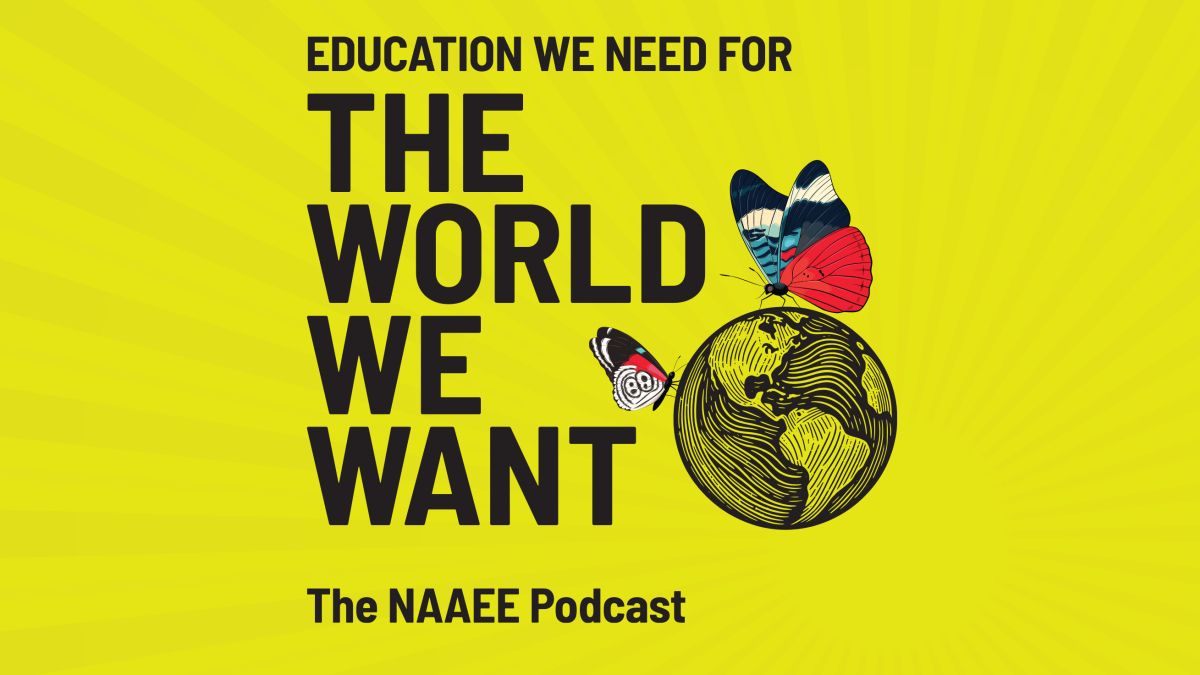
Imagine a world where communities thrive, curiosity sparks change, and hope fuels action. Welcome to The World We Want, the NAAEE podcast that's bringing a better future to life, one inspiring story at a time. Join us as we chat with people across continents and cultures who care about education and the environment—the trailblazers, visionary leaders, and everyday heroes making a difference.
Listen Now
Enjoyed This Episode?
Share your thoughts, takeaways, or resources you'd love to see featured by logging in or creating a free eePRO account.
